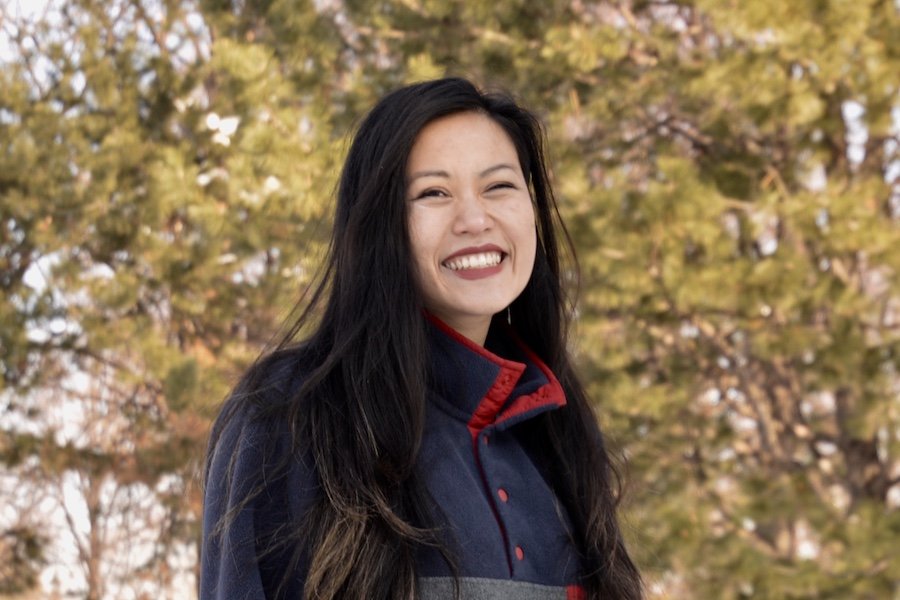Marie Wulff is prepared to fly high in the aerospace industry

Photo credit: Marie Wulff
CSE senior discusses heading to Planet Labs and what lies ahead
April 9, 2021
If you can get through a STEM degree, you can do anything. That’s College of Science and Engineering student Marie Wulff’s philosophy.
Wulff, a senior studying electrical engineering, has a lot of aspirations, including working in the aerospace industry, starting her own business, becoming a lawyer, and even running for the U.S. senate. And, she feels she’s prepared for them all.
“Even if you don't end up doing STEM stuff, you learn a lot of really important skills in CSE, like reasoning, critical thinking, and analysis,” said Wulff, a recipient of multiple scholarships, including the U of M Brian L. Fitterer Scholarship and CSE Roger Nordby Electrical Engineering Scholarship. “You get used to the rigor and the amount of work and effort you have to put in.”
“Nothing scares me now. I feel very prepared to take on any sort of challenge at this point,” she said.
Recently, Wulff was one of only 44 people nationwide to receive the prestigious Brook Owens fellowship, which matches women and minority students with internship opportunities in aerospace organizations. After she graduates this spring, Wulff is headed to Planet Labs, a geospatial insights company based in California.
In this Q&A, she shares her thoughts on her academic journey, her aspirations for the future, and why it’s important to get involved in student groups.
Why did you choose to study electrical engineering at the University of Minnesota?
When I was in elementary school, my science teacher encouraged me to apply to a STEM camp for women. I didn’t really know what to expect, but I came out of it knowing that I wanted to be an engineer. From there, I attended as many STEM camps as I could. At one of these camps I actually met Kale Hedstrom, the lab coordinator for [CSE’s Department of Aerospace Engineering and Mechanics], while taking a summer course on circuits and robotics. I was also part of my high school robotics team.
I was attracted to the U because of its location, the great engineering programs it had, and the opportunities for scholarships and financial aid.
How did you become interested in the aerospace side of engineering?
It was my sophomore year. I was trying to find an internship, which can be really hard. I had a friend from the Society of Women Engineers (SWE), and she was like, “Oh, you could definitely volunteer in my research lab.” I didn't have anything else lined up, so I just started volunteering, and that's how I ended up in the U of M Small Satellite Research Laboratory. Through there, I ended up becoming the electrical power subsystem lead, and then chief engineer. I had never really thought about a career in aerospace before then, because I was never a huge space nerd in high school or middle school. Then I realized that there's a lot behind it, and what the [Small Satellite lab] does is really cool.
What excited you about working at Planet Labs?
Planet Labs does more Earth observation stuff. They have more than 100 satellites in orbit right now and they take pictures of everything on earth, which is useful for agriculture, for example, or environmental sustainability. You can see how the earth is changing over time.
The biggest thing for me was that their mission was more about getting insight into our planet instead of space. I’m really interested in stuff that's more Earth-based, because I think we should be working to improve our planet and find ways that we can protect our planet.
I also like that Planet Labs is smaller. I think in a smaller company, you really have the opportunity to get to know people better and feel like your voice is heard.
What are your plans for the future?
I’d like to work in industry for a bit, and perhaps return for a master’s degree in systems engineering, or attend law school. I want to eventually run for the U.S. Senate. I think that having more scientists and engineers in politics is really important because they have the critical-thinking skills and are able to make sure everything is fact-based. I’d also like to start my own business.
You’re involved in several student organizations, from Society of Women Engineers to Ballroom Dancing Club. Why are extracurricular activities important to you?
I’m a very social person, and it's been really fun to meet people. And, connecting and making friends ultimately grows your network.
Being in these organizations has [also] helped me gain valuable experiences, some that are more research-based and project-based work, and some that are professional development.
What is your advice for aspiring engineers, aerospace or otherwise?
Utilize resources! I have never hesitated to reach out for help when I needed it, academically or personally, and that has been critical to smoothing out the wrinkles in my journey through college. It’s okay to feel awkward or nervous about asking for help, but make the leap. It’s worth it!
Edited from the Department of Electrical and Computer Engineering website. Interviews by Roopa Sukumaran Berzins and Olivia Hultgren
Read more about Marie Wulff on the Brooke Owens Fellowship website.
If you’d like to support students at the University of Minnesota College of Science and Engineering, visit our CSE giving page.
